Asian Companies' Profits Drop For First Time In 7 Quarters
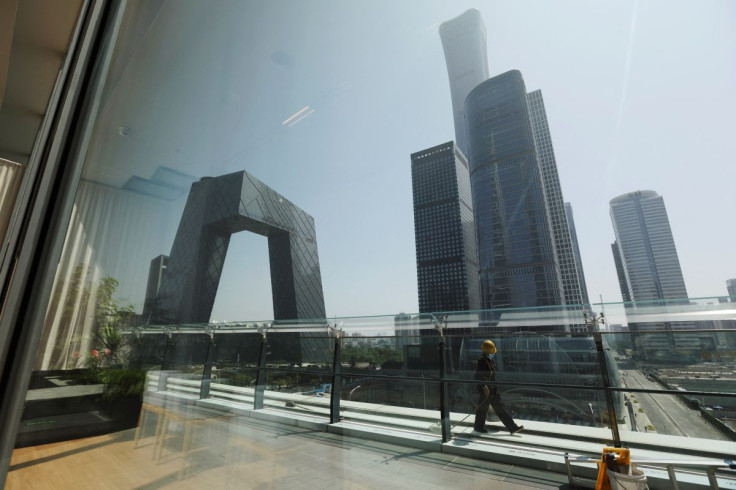
Earnings by Asian companies in March declined for the first time in seven quarters, dented by slowing demand due to lockdowns in China and diminishing margins as input costs rise.
According to a Reuters analysis of Asia's top 1,500 large- and mid-cap companies by market-capitalization and those that are covered by at least three analysts, cumulative profits of these firms declined 3.2% in the March quarter year-on-year.
GRAPHIC: Asian companies' quarterly profit (
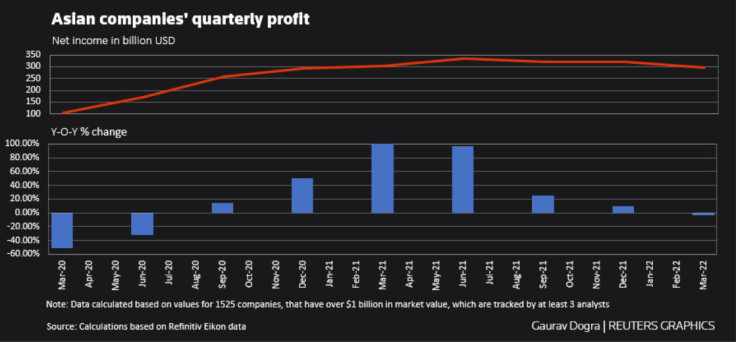
)
That was the first decline since June 2020.
The data also showed their average net margins stood at 5.86%, the lowest in seven quarters.
GRAPHIC: Asian firms' net margins (
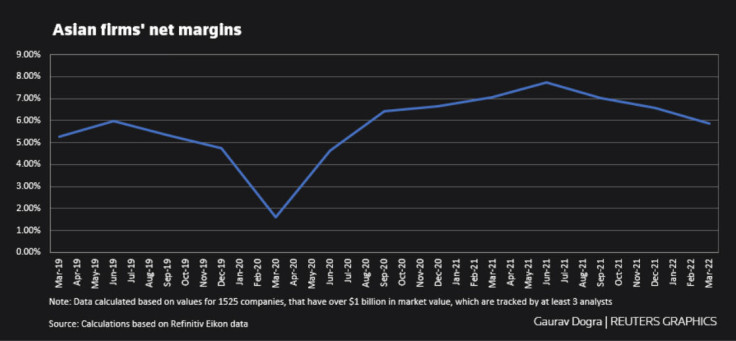
)
"Higher commodity prices are impacting profit margins, as companies struggle to pass on higher input costs to their consumers," said Herald van der Linde, head of equity strategy, Asia Pacific, at HSBC.
The decline in earnings came as investors ditched regional equities on concerns that firms may not be able to cope with rising interest rates and soaring inflation levels.
China's business activity and consumption slowed in the first quarter due to a resurgence of COVID-19 cases, which also affected regional companies exporting to the Asian country.
The data showed Malaysian and South Korean companies, which derive a major portion of their revenue from China, witnessed a drop of 18.3% and 18.9% in their first-quarter earnings, respectively.
GRAPHIC: Breakdown by country for profit growth in Q1 2022 (
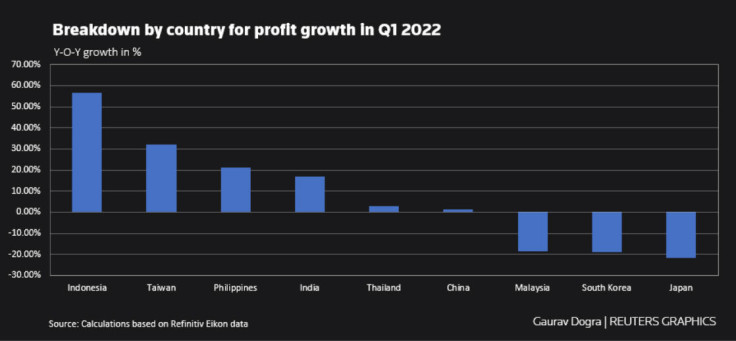
)
Toyota Motor reported a 33% drop in the March-quarter operating profit, and warned that unprecedented hikes in raw material costs could slice a fifth of its full-year profit amid the supply-chain stress that has roiled the automobile industry.
Lenovo, the world's largest PC maker reported its slowest quarterly revenue growth in seven quarters as demand for its personal computers waned after two years of pandemic-driven demand.
Some analysts expect rising interest rates should further affect corporate profits and margins in coming months.
South Korea's central bank has already lifted its interest rates thrice this year, while India's central bank raised twice, in efforts to combat inflation and prevent foreign outflows.
"We do expect central banks to tighten as inflationary pressures continue. Higher borrowing costs will certainly hit leveraged corporates," said Zhikai Chen, head of Asian equities at BNP Paribas Asset Management
However, he added that the financing impact should be manageable as Asian corporates, especially those severely hit by the Asian financial crisis, have reasonable leverage ratios.
According to the data, Asian companies' profits are expected to increase just 6.7% in 2022, the lowest in three years, with analysts still expecting the slowdown in China to linger for a while.
"In the near term, we think slowing economic growth, fading operating leverage and the lagged effect of rising input prices (notably oil) are likely to impact margins more in 2022," said Amman Patel, a investment strategist at Credit Suisse.
GRAPHIC: Breakdown by sector for net margins (
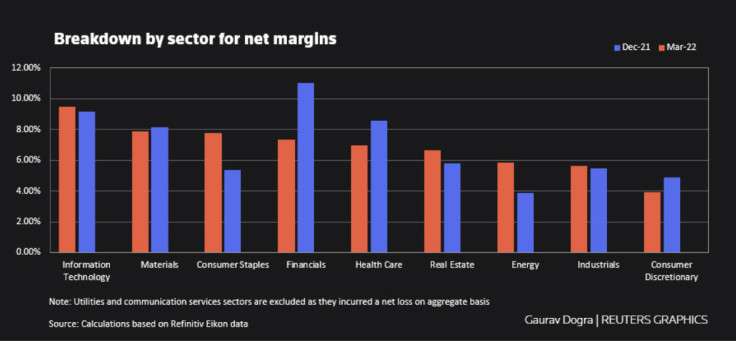
)
GRAPHIC: Breakdown by sector for profit growth in Q1 2022 (
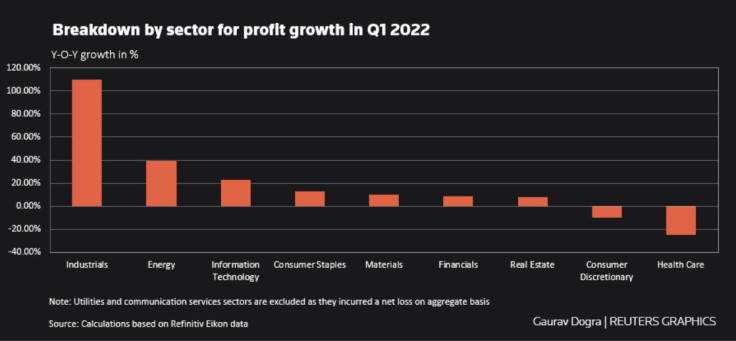
)
© Copyright Thomson Reuters 2024. All rights reserved.







